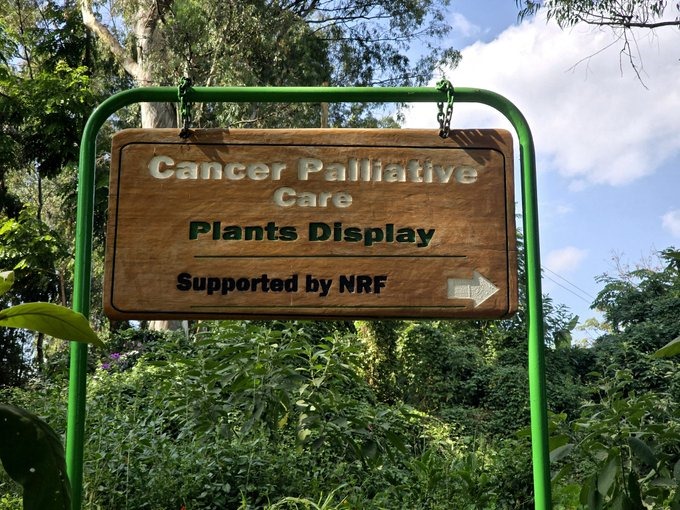
Cancer Palliative Garden: Advancing Indigenous Knowledge for Cancer Care
Cancer is an indiscriminate adversary. It spares neither the health-conscious nor the unsuspecting, leaving countless families grappling with emotional and financial turmoil. With over 47,000 new cancer cases and 32,000 deaths annually in Kenya, the urgency to expand treatment options has never been greater. While modern medicine continues to advance, traditional knowledge offers untapped potential in cancer management—potential that, until now, remained largely undocumented.
At the National Research Fund (NRF), we believe that research should drive solutions that are both innovative and relevant to society’s pressing challenges. This belief underpins our support for the Cancer Palliative Garden, a groundbreaking initiative by the National Museums of Kenya (NMK) in collaboration with the University of Nairobi (UoN), the Kenya Medical Research Institute (KEMRI), and the Ministry of Culture and Social Services. More than just a botanical space, this initiative is a living laboratory where science and tradition converge to explore alternative approaches to cancer care.
Beyond Research: Training, Capacity Building, and Policy Change

The Cancer Palliative Garden represents more than just a research breakthrough—it is a shift in perspective. By creating a space where cancer patients and their families can learn about plant-based therapies, the initiative fosters awareness and empowerment. Additionally, the project has played a crucial role in capacity building, equipping both healthcare professionals and traditional health practitioners (THPs) with knowledge on the safe and effective use of medicinal plants.
Key Project Achievements
- Identified 194 herbalists providing cancer palliative care services, with their levels of care categorized into five groups.
- Deposited 150 plant specimens in the East African Herbarium, with curated germplasm ensuring ex situ conservation and education on cancer palliative care.
- Listed 26 priority plants for conservation, propagated and distributed 300 seedlings.
- Established two cancer palliative care plant display gardens—one at NMK headquarters within the Nairobi Botanic Garden and another in Ndaragwa, Nyandarua County.
- Trained 26 THPs on the importance of copyright and intellectual property protection, with three successfully protecting their treatment protocols.
- Published four research papers disseminating findings on perceived benefits, client satisfaction, indigenous palliative cancer care practices, traditional practitioner competence, and patient/carer treatment-seeking behaviors.
Scientific Validation of Indigenous Medicine
For generations, THPs have relied on medicinal plants to manage various ailments, including cancer. However, the lack of scientific documentation has limited their integration into mainstream healthcare. The NRF-funded project aimed to bridge this gap, systematically identifying and analyzing 25 plant species reported to have nutraceutical properties. These plants—ranging from Combretum molle (Velvet Bushwillow), recognized for its antioxidant benefits, to Prunus africana (African Cherry), traditionally used in prostate cancer treatments—are now being examined for their potential role in palliative care.
The research team conducted an extensive study on 443 cancer patients, tracking their response to plant-based regimens. The results were compelling: 76% of the patients reported improved quality of life, with notable reductions in pain, inflammation, and other cancer-related symptoms. This reinforces the idea that integrating traditional knowledge with scientific rigor could open new frontiers in cancer management.
NRF remains committed to funding research that has tangible societal benefits. The success of this project underscores the need for continued investment in indigenous knowledge systems, ensuring that valuable, homegrown solutions are not lost to history but instead refined, validated, and made accessible to those in need.
As cancer continues to challenge healthcare systems globally, the Cancer Palliative Garden serves as a beacon of possibility—where science meets tradition, and hope is rooted in every plant.